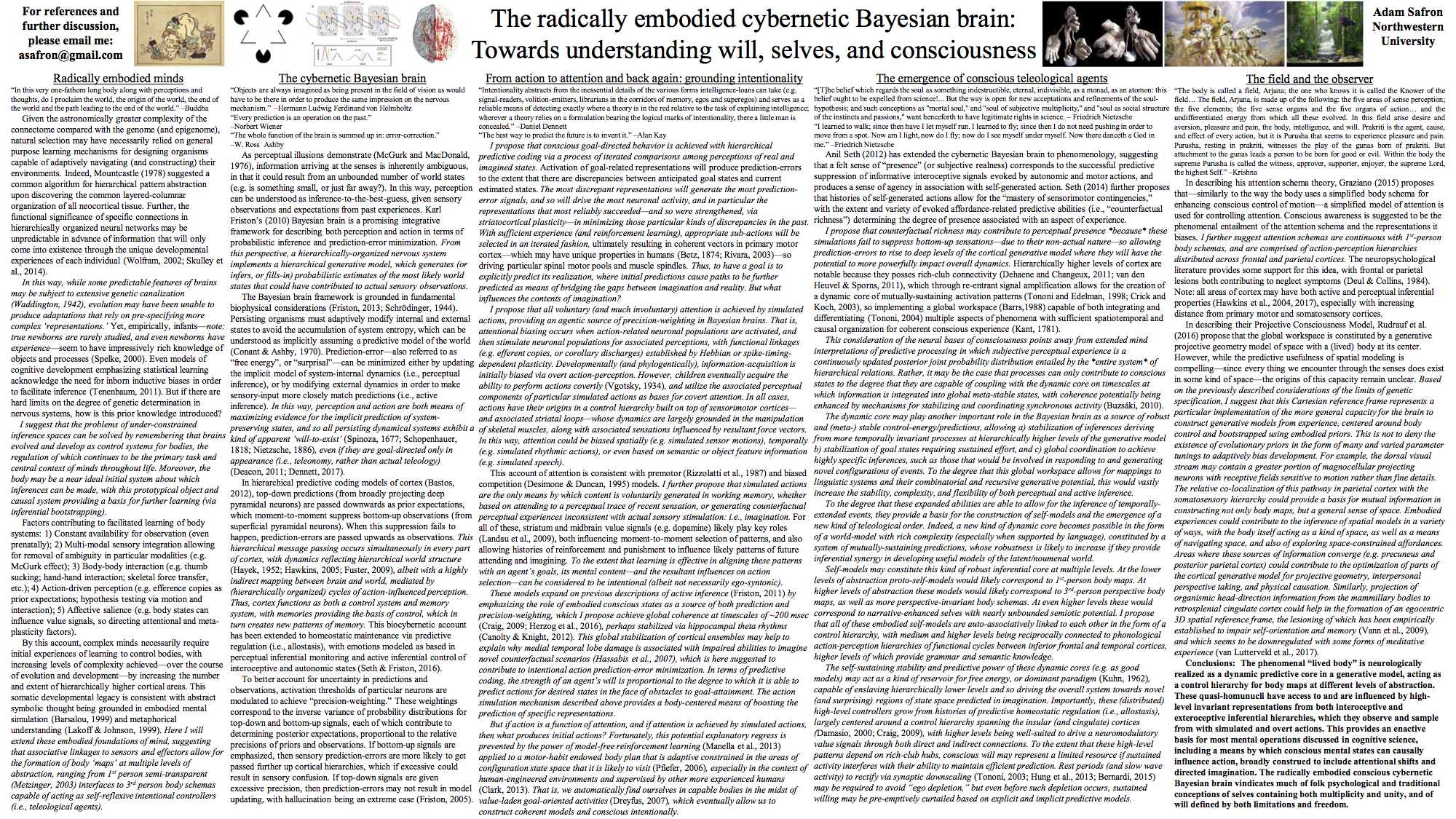Adam Safron, Graduate Student, Northwestern University
Enactivists have criticized traditional cognitive science as hamstrung by naïve Cartesian assumptions that mischaracterize minds as analyzable apart from the context of embedded bodies. Indeed, the starting place for understanding minds must be in terms of their evolution and development as control systems for niche-constructing organisms. However, in this presentation I will draw from both perspectives, proposing that an adequate characterization of teleological phenomena may require revisiting mental homunculi, understood as body maps with quasi-agentic properties. I will also introduce a model in which simulated engagement of motor responses (along with associated perceptions) allow for voluntary attending to representations, which may produce (via active inference in a predictive coding framework) intentionally-directed actions if sufficiently robustly activated. This cybernetic grounding of teleology suggests that
cognitivist and enactivist perspectives are synergistic, rather than competing.
